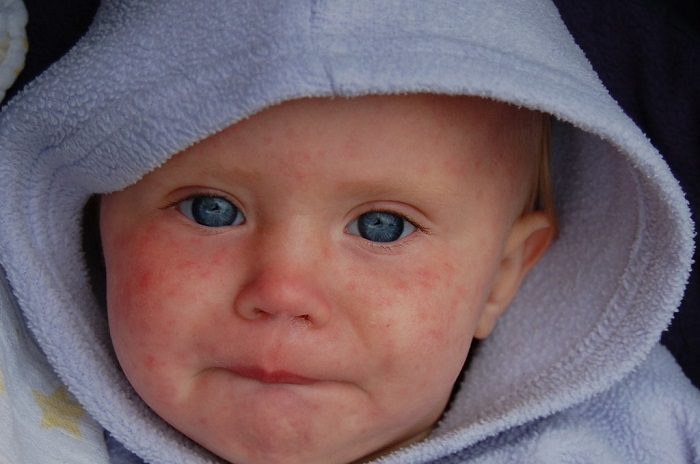
The viral infection was declared eliminated from the U.S. in 2000 but has since come back with a vengeance. One of the big reasons measles is spreading is because of the many surrounding the disease. Here five of the top myths about measles debunked. It’s time to separate the fact from the fiction.
Myth 1: There is no measles outbreak.
Some are in denial surrounding the severity of the outbreak but it’s a serious reality. In 2019, the U.S. has experienced the greatest number of measles cases reported since the disease was eliminated from this country in 2000, the Infectious Diseases Society of America reports. According to the CDC, an outbreak is defined as three or more cases in a community and we’ve seen numerous measles outbreaks throughout the nation. The truth is the outbreak would be way worse if the majority of Americans weren’t vaccinated.
Myth 2: The measles vaccine causes autism.
This is one of the most popular myths surrounding measles but it is completely false. One of the reasons this idea may have developed is because the MMR vaccine is given around the first birthday. This is around the same time the signs of autism become more obvious and it is diagnosed. There have been countless large studies done and there hasn’t been one that has showed any connection between autism and the MMR vaccine.
Myth 3: Only children get measles.
Yes, adults have a significantly lower chance of contracting measles but there are cases where they should still be vaccinated, particularly adults born between 1957 and 1989. Those who were born before 1957 are considered immune because they either had or had been exposed to measles. Those born between 1957 and 1989 may have had one of the earlier doses of the measles vaccine that may have been less effective. If you’re in an area where the measles outbreak is prevalent, it is recommended that you get a second dose of the MMR.
Myth 4: My child is only a year old and is too young to be vaccinated.
Given the current situation, it is recommended that vaccinations begin at 12 months. Most children get their first measles vaccine between 12 and 15 months. If there’s a local outbreak, it is recommended that your child be vaccinated sooner, as young as 6 months.
Myth 5: There are natural ways to prevent the measles.
Don’t trust sources that say that there are natural ways to prevent the measles. There are no natural preventative measures for measles. Orlando Health reports that vaccinations are the single most effective way to prevent yourself from contracting measles.
It can’t be stressed enough that the measles outbreak is a serious matter. According to the World Health Organization, measles cases have continued to climb this year and preliminary global data shows that reported cases rose by 300 percent in the first three months of 2019. They also reported that there are spikes in case numbers in countries with high overall vaccination coverage like the U.S. The best thing you can do is read about vaccines on accurate sites such as the CDC website, talk to your doctor and get vaccinated.
The measles is a serious disease that can lead to serious complications.


